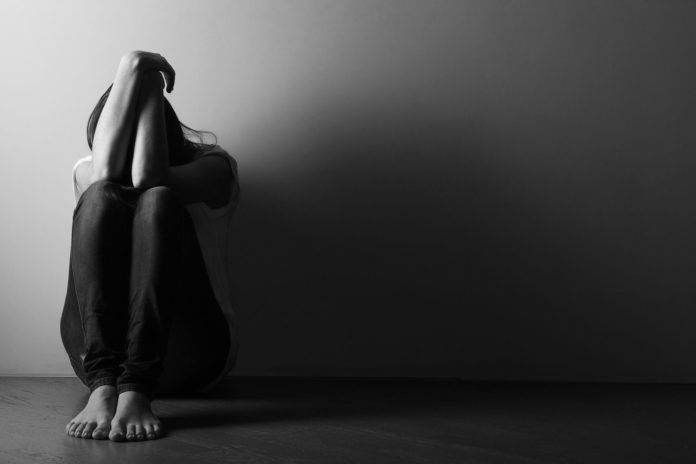Being depressed feels like there is a big hole in heart which won’t heal or it feels like carrying a burden, but trust me you are not alone. Billions of people across the globe suffer from same mental situation every year, which makes it one of the most common mental disorders.
In order to initiate the journey of recovery, it is essential to attain a better understanding of what is depression and types of depression? Learning about depression symptoms, types and depression causes will help you greatly in considering the methods of depression treatments.
What is Depression?
Depression is not limited to feeling sad. We all feel unmotivated, sad or upset at various point of time in life, but depression is a more serious issue. It is disorder associated with mood and featured by extended feeling of sadness and losing interest in everyday activities. If anyone faces these symptoms for more than two weeks then it is depressive episode. It is different from mood swings that people often experience in daily life. It can last for many years, weeks, and months. Below mentioned are some of the types of symptoms that can get worse due to depression.
- obesity
- asthma
- diabetes
- arthritis
- cancer
- cardiovascular disease
Depression Symptoms
Depression is far more than feeling sadness. Major depression can result in different types of symptoms. Some of the symptoms affect your body, while the others affect your mental health or mood. Symptoms are often different among children, women, and men. Some of the common symptoms experienced by men are as follows:
- working without appropriate break
- avoiding social situations
- abusive behavior
- insomnia or excess sleeping
In Women
- Moods like irritability
- Anxiety
- Fatigue
- Mood swings
- Negative thoughts
In teens and college students
- Lack of concentration
- Insomnia
- Decreased appetite
- Avoiding social activities
- Restlessness
- Feeling worthless
In children
- low energy
- vocal outbursts
- crying
- disobedient behavior
- clinginess
Depression Causes
Medical community is still not clear about the exact causes. There could be varied causes and sometimes different factors trigger the symptoms. Below mentioned are some of the common depression causes.
- Excess use of drug and alcohol increases the risk of depression
- If you have a family history of depression, then there are higher chances of developing depression
- Certain medical conditions like insomnia, chronic pain, or insomnia can also cause depression
- Social and psychological factors can also lead to depression
- Some events also effect the mental health and can trigger depression
Types of Depression
Depression can be categorized on the basis of severity of symptoms. Some people experience mild episodes of depression, whereas other people might experience severe episodes. Mainly there are two types-
Persistent Depressive Disorder
It is also known as dysthymia and it is a milder form of depression. A person with this form of depression might experience milder as well as major symptoms. Common symptoms of this disorder include:
- Feeling hopeless
- Lack of productivity
- Low self esteem
- Losing interest in normal activities
Major Depression
It is a severe form of depression and it is featured by constant feelings of worthlessness, hopelessness, and sadness which don’t fade by their own. In this case, people often lose interest in the activities that they once used to enjoy. Most common symptoms of major depression are as follows:
- Feeling depressed
- Loss of concentration
- Fatigue
- Significant weight gain or loss
- Lack of concentration
- Frequent thoughts of suicide or death
- Slowed moment or thinking
- Inability to sleep or sleeping a lot
Depression Treatment
We understand that living with depression is quite difficult, but treatment can help you in improving the life quality. In order to explore the possible options, have a word with your healthcare provider. Below mentioned are some of the depression treatments that you can opt for.
- Medications
You should consult your healthcare provider regarding the medications. You healthcare provider would provide you with antipsychotic, antidepressants, and antianxiety medications. All the medications that are used to treat mental health issues contain their own risks and benefits.
- Psychotherapy
Consulting a therapist can help you in learning different skills required to deal with negative feelings. You may also benefits from the group or family therapy sessions.
- Exercise
Try to exercise for thirty minutes every day. Exercising every day help in production of endorphins, which in turn, are beneficial for improving mood.
- Avoid drugs and alcohol
Alcohol or drug misuse might make you feel better for some time, but in the longer run, these substances can trigger anxiety.
- Food and diet
There are certain foods and supplements which can help you to get some relax. Such foods include fruits, fish, olive oil, and vegetables. In order to know more read foods to fight depression.
- Brain Stimulation Therapies
Another treatment option is brain stimulation therapies. If you do not find benefits of these therapies then you can also opt for electroconvulsive therapy.
- Take Care of Yourself
The most important part of the treatment is taking care of you. This comprises eating a healthy diet, avoiding negative people, and getting plenty of sleep. Try to participate in enjoyable activities; it will help you in improving your mood.

















